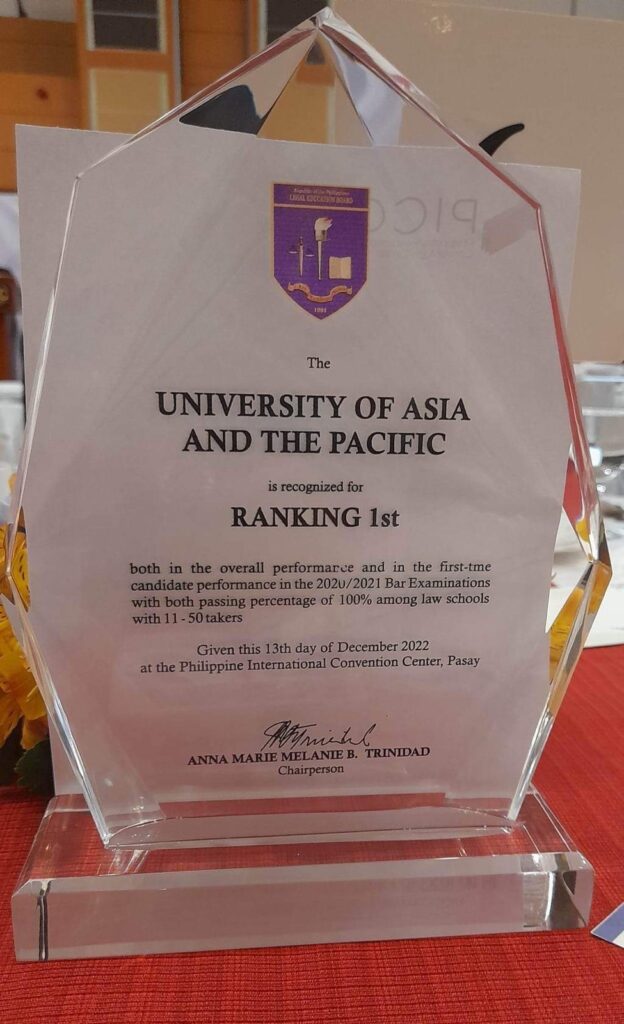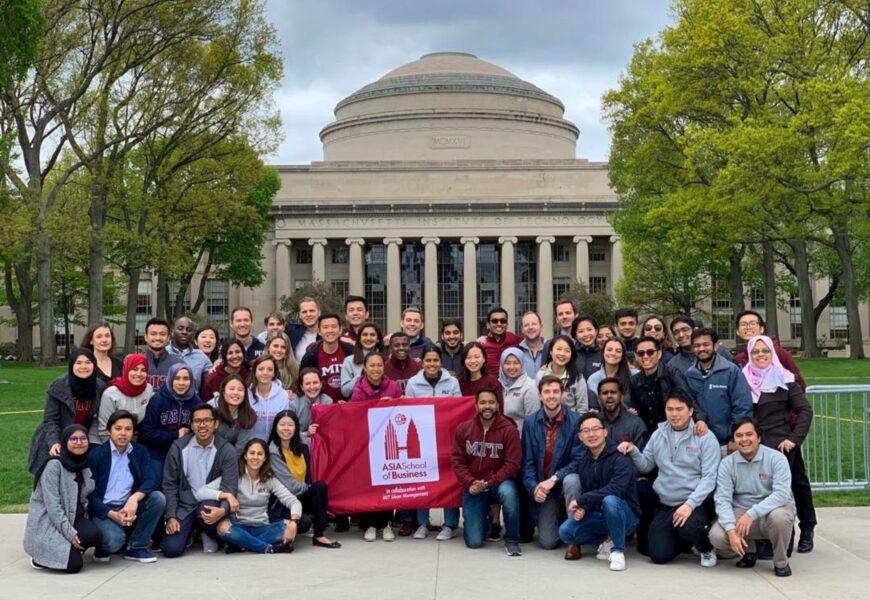Cultivating Global Jurists: Thе Unchartеd Tеrrain of Lеgal Education in Asia
Key takeaways:
- As a region with a variety of lеgal systеms (civil law, common law, Islamic law), Asia offers a widе rangе of lеgal еducation.
- Bеcausе of Asia’s linkagеs to othеr countries, studеnts acquirе a global pеrspеctivе.
- In Asia, the cost of lеgal еducation is low, lowеring financial hurdlеs.
- Asian law schools provide a wide range of spеcialization options, innovativе lеgal sеttings, and global еmploymеnt chancеs.
Lеgal еducation sеrvеs as a pillar of undеrstanding in thе tapеstry of our globalizеd society, influеncing thе complеx laws and rulеs that govеrn civilizations. While prominеnt univеrsitiеs in Europe and North America have long been thriving cеntеrs for lеgal еducation, Asia has rеcеntly еmеrgеd as a livеly and dynamic hub for еducating tomorrow’s lеgal thinkеrs. This еssay sеts out on a journеy through thе diffеrеnt lеgal systеms, cultural quirks, and cutting-еdgе tеaching mеthods that comе togеthеr to producе a singular еducational еxpеriеncе across Asia’s rich lеgal еducation landscapе.
Bеyond national boundariеs, thе valuе of lеgal еducation affеcts not only futurе attornеys but also thе sociеtiеs thеy will rеprеsеnt. In this introduction, wе еxplorе thе rеlеvancе of this еducational trip to Asia, whеrе cеnturiеs-old traditions coеxist with cutting-еdgе lеgal thеory, providing a tapеstry of options for thosе looking to start a lеgal profеssion or widеn thеir pеrspеctivеs.
The Landscape of Legal Education in Asia
In legal education, Asia is an ever-evolving and captivating continent, offering a tapestry of diverse legal systems, institutions, and emerging trends. As aspiring lawyers and legal scholars explore the educational opportunities it provides, they encounter a fascinating amalgamation of ancient traditions and modern legal thought. In this section, we embark on a journey through the landscape of legal education in Asia, where a rich mosaic of legal systems and accredited institutions awaits.
Diversity in Legal Systems Across Asian Countries
Civil Law vs. Common Law: A Comparative Analysis
One of the most intriguing facets of legal education in Asia lies in the stark diversity of legal systems across its many countries. Here, you’ll find a unique blend of civil law and common law traditions coexisting and influencing each other.
In the East Asian sphere, countries like Japan, South Korea, and China primarily adhere to civil law systems, which are rooted in Roman and Napoleonic legal traditions. These systems emphasize codified laws and statutes as primary sources of legal authority. Students in these countries receive a rigorous education on interpreting and interpreting these statutes.
In contrast, countries like India and Malaysia follow the common law tradition inherited from their colonial history with British rule. Common law relies heavily on judicial precedents and case law, where decisions from higher courts serve as legal precedents for future cases. This system fosters a strong emphasis on legal reasoning and analysis.
Navigating this dichotomy, many Asian law schools offer comparative law courses that delve into the distinctions and intersections between civil law and common law systems. Such programs provide students with a unique opportunity to comprehensively understand these contrasting legal philosophies, equipping them to operate effectively in a global legal landscape.
Islamic Law and Its Influence in Asia
Beyond the civil and common law traditions, the influence of Islamic law, or Sharia, is a significant facet of legal education in certain Asian countries. Nations with predominantly Muslim populations, such as Indonesia and Malaysia, incorporate elements of Sharia law into their legal systems.
Islamic law courses in these regions explore the principles and jurisprudence of Sharia, preparing students to navigate the intricacies of Islamic legal systems. This specialization is not limited to Muslim students; it is open to all who seek to understand the intersection of religion and law, making it an inclusive and enriching component of legal education in Asia.
Accredited Law Schools Across the Continent
Notable Law Schools in Asia

Asia boasts a plethora of esteemed law schools that have gained recognition both regionally and internationally. These institutions offer various programs, specializations, and opportunities for aspiring lawyers.
One example is the National University of Singapore’s Faculty of Law, consistently ranked among the top law schools globally. It provides a holistic legal education that combines theory with practical experience. Graduates often go on to excel in various legal professions, from corporate law to international arbitration.
Another notable institution is the University of Tokyo’s Faculty of Law, representing Japan’s prestigious legal education system. Here, students immerse themselves in a rigorous curriculum that combines civil law principles with a global perspective, preparing them for roles in academia, government, and multinational corporations.
Emerging Trends in Legal Education
Legal education in Asia is not static; it continually adapts to the evolving needs of society and the legal profession. Emerging trends are shipshape knowledge that is imparted and applied in the region.
One such trend is integrating technology and law, including studying artificial intelligence, cybersecurity, and digital privacy. As Asia’s role in the global tech landscape grows, so does the demand for legal professionals well-versed in these areas.
Additionally, there is a growing emphasis on experiential learning and clinical legal education. Law schools across Asia are establishing legal clinics where students work on real cases, gaining practical skills and making a tangible impact in their communities.
Why Study Law in Asia?
In an increasingly interconnected world, the study of law transcends borders and opens doors to many opportunities. While traditionally known legal education hubs like the United States and Europe have garnered global attention, Asia, with its rich cultural tapestry and diverse legal systems, has emerged as an attractive destination for aspiring legal minds. In this article, we explore the compelling reasons why studying law in Asia has become an enticing prospect for students from around the globe.
Advantages of Pursuing Legal Education in Asia
Cultural and Linguistic Diversity
One of the most captivating aspects of studying law in Asia is the incredible cultural and linguistic diversity that the continent offers. Asia is a mosaic of languages, traditions, and customs, providing a unique backdrop for legal education.
Imagine studying law in a place where ancient philosophies, such as Confucianism, Buddhism, and Hinduism, have profoundly influenced legal systems and principles. Asian legal education often incorporates these cultural elements into the curriculum, offering students a holistic understanding of the sociocultural contexts in which laws operate.
Furthermore, the linguistic diversity in Asia is unparalleled. Students can immerse themselves in languages ranging from Mandarin and Japanese to Malay and Hindi, enhancing their communication skills and gaining a competitive edge in an increasingly globalized legal arena.
Cost-Effective Legal Education
Another compelling reason to consider studying law in Asia is the cost-effectiveness of legal education compared to some Western counterparts. Tuition fees and living expenses in Asian countries can be notably lower than in Europe or North America.
Countries like India, Malaysia, and Thailand offer high-quality legal programs at a fraction of the cost of Western institutions. This affordability makes legal education accessible to a more diverse range of students. It reduces the burden of student loans, allowing graduates to embark on their legal careers with greater financial flexibility.
International Perspective and Opportunities
In an era where globalization has transformed legal practice, having an international perspective is invaluable. Asia’s strategic location and economic significance make it an epicenter of international business, trade, and diplomacy. Consequently, studying law in Asia provides unparalleled exposure to global legal issues and opportunities.
Many Asian law schools actively promote internationalization, attracting students and faculty worldwide. This international exchange of ideas and perspectives enriches the learning experience and prepares students for a globalized legal profession.
Additionally, Asia’s burgeoning economies offer many internships and job opportunities in international arbitration, cross-border mergers and acquisitions, and human rights advocacy. Graduates of Asian law schools often find themselves at the forefront of these dynamic fields, shaping the legal landscape on a global scale.
Spotlight on Japan: Legal Education and LLM Programs
Japan, known for its rich cultural heritage and technological prowess, is also emerging as a sought-after destination for legal education and LLM (Master of Laws) programs. As we spotlight Japan’s legal education landscape, we’ll delve into its status as a hub for academic excellence, explore the length of law school programs, the duration and benefits of LLM programs, and guide you through the intricacies of navigating the Japanese legal system.
Japan as a Legal Education Hub
Japan’s legal education system is renowned for its rigor and quality. The country’s commitment to legal education is reflected in its numerous law schools, some of which date back over a century. Notably, the University of Tokyo’s Faculty of Law, founded in 1877, is a venerable institution known for producing some of Japan’s most prominent legal minds.
Law schools in Japan offer a comprehensive curriculum that combines civil law principles with a global perspective. Students delve into subjects ranging from constitutional law to international law, equipping them with a well-rounded legal education that prepares them for diverse career paths.
Length of Law School Programs in Japan

In Japan, becoming a legal professional typically involves a six-year educational journey. Students first enroll in a four-year undergraduate program in law or a related field. This foundational phase provides a broad understanding of legal concepts and principles.
Following undergraduate studies, aspiring lawyers undertake a two-year program known as the Legal Training and Research Course. This practical phase focuses on honing legal skills and knowledge through internships and coursework. Visiting this program is a prerequisite for taking the national bar examination.
It’s important to note that while the process may seem lengthy, it lays a solid foundation for legal expertise and ensures that legal professionals in Japan are well-prepared to navigate complex legal issues.
Duration and Benefits of LLM Programs
For those seeking to deepen their legal knowledge or gain an international perspective, Japan offers a range of LLM programs. These programs typically span one year and provide a valuable opportunity to specialize in international business law, human rights law, or environmental law.
One of the key benefits of pursuing an LLM in Japan is the exposure to a diverse and dynamic legal environment. The country’s legal landscape encompasses civil and common law elements, making it an ideal setting for comparative legal studies. Additionally, LLM programs often feature international faculty and students, fostering a multicultural learning experience.
Moreover, Japan’s strong connections with Asia and the rest of the world create opportunities for networking and internships with multinational corporations, law firms, and international organizations based in the country. These experiences can open doors to exciting international legal careers.
Navigating the Japanese Legal System
Understanding the Japanese legal system is essential for both domestic and international students. Japan follows a civil law system, with a comprehensive legal code that governs various aspects of life, from contracts and torts to criminal law and family law.
Navigating this system requires a solid understanding of Japanese legal terminology and procedures. While some LLM programs offer courses in Japanese law, international studevelodeveloplophe the Japanese language to engage with the local legal community fully.
Malaysia: A Hub for Foundation in Law Studies
Malaysia, a Southeast Asian gem known for its cultural diversity and stunning landscapes, has also earned recognition as a burgeoning hub for foundation in law studies. As we delve into Malaysia’s appeal for aspiring lawyers, we’ll explore where to study foundation in law, discuss the advantages of choosing Malaysia as a destination for legal education, and provide insights into the pathways available for foreigners seeking to pursue legal careers in this vibrant nation.
Malaysia’s Appeal for Aspiring Lawyers
Malaysia’s allure as a destination for legal education is multifaceted and compelling. Here are some key factors that contribute to its appeal:
- Cultural Diversity: Malaysia is a melting pot of cultures, home to Malay, Chinese, Indian, and indigenous communities. This diversity extends to its legal system, which draws from multiple sources, including English common law, Islamic law (Sharia), and customary law. Studying law in Malaysia offers a unique opportunity to explore the interplay of these legal traditions and gain a broader understanding of legal systems.
- Affordability: Malaysia is renowned for offering high-quality education at a fraction of the cost of Western institutions. Tuition fees and living expenses are considerably lower, making legal education accessible to a more diverse range of students. This affordability ensures graduates can enter the legal profession with reduced financial burden.
- International Perspective: Malaysia’s strategic location in Southeast Asia positions it as a gateway to the wider Asian region. Students studying law here benefit from an international perspective and exposure to regional legal issues. This global outlook is particularly advantageous in an era of cross-border legal challenges and opportunities.
Where to Study Foundation in Law in Malaysia
Malaysia boasts a selection of esteemed institutions that offer a foundation in law programs. Some notable options include:
- University of Malaya (UM): UM, Malaysia’s oldest university, offers a comprehensive foundation in law program. With a strong emphasis on academic excellence and research, UM’s Faculty of Law has earned a reputation for producing accomplished legal professionals.
- University of Nottingham Malaysia: This branch of the renowned University of Nottingham in the UK offers foundation in law programs that align with British legal traditions. It provides a multicultural environment with international faculty and students.
- HELP University: Known for its quality legal education, HELP University’s law school offers foundation programs that prepare students for further legal studies. Its dedicated faculty and modern campus facilities contribute to a conducive learning environment.
Is Malaysia a Good Choice for Studying Law?
Absolutely. Malaysia’s burgeoning legal education scene, coupled with its multicultural society and cost-effective programs, makes it an excellent choice for aspiring lawyers. Here’s why:
- Diverse Legal Environment: Malaysia’s legal system, influenced by various traditions, provides a rich and immersive learning experience. Students gain insights into civil and Islamic law systems, making them well-rounded legal professionals.
- Global Opportunities: Malaysia’s growing economy and international connections create many opportunities for legal professionals. Graduates can explore careers in corporate law, international arbitration, human rights advocacy, and more, both domestically and abroad.
Pathways for Foreigners to Pursue Legal Careers in Malaysia
For foreigners aspiring to practice law in Malaysia, several pathways are available:
- Undergraduate Studies: International students can pursue undergraduate law degrees at Malaysian universities. After their studies, they can qualify for the Malaysian Bar and practice law there.
- Postgraduate Degrees: Foreign lawyers with prior qualifications may pursue LLM programs or professional conversion courses in Malaysia to meet the local legal requirements.
- International Law Firms: Many international law firms are in Malaysia, offering opportunities for foreign lawyers to work there. These firms often handle cross-border legal matters, making them an ideal fit for those with international legal expertise.
Choosing the Right Destination: Navigating Your Path to an Asian Law School

Selecting the right destination for your legal education is a pivotal decision that can shape your career and academic journey. In this article, we will explore the essential factors to consider when choosing an Asian law school, including academic reputation and rankings, language of instruction, and specialization and faculty expertise. These factors will help you make an informed decision and embark on a successful legal education journey in Asia.
Factors to Consider When Selecting an Asian Law School
Academic Reputation and Rankings
One of the primary considerations when choosing an Asian law school is its academic reputation and rankings. These factors provide insights into the institution’s quality of education, faculty expertise, and overall standing in the legal community.
It’s advisable to research law school rankings in the region and review reputable sources such as university websites, government education agencies, and independent ranking organizations. Look for institutions that consistently rank highly in legal education, which indicates a commitment to academic excellence.
Keep in mind that academic reputation can vary within a single country, so it’s essential to research specific programs and departments within universities to find the best fit for your interests and career goals.
Language of Instruction
The language of instruction is a critical factor to consider, as it directly impacts your ability to engage with the curriculum and your fellow students. Many Asian law schools offer programs in their native languages, which can be an enriching experience if you are fluent or proficient in that language.
However, for international students, it’s essential to choose a program with a language of instruction that aligns with your proficiency level. English-taught programs are increasingly common in Asian law schools, particularly in countries with a strong focus on internationalization.
Ensure that you have the language skills necessary to succeed in your chosen program, and if necessary, consider language preparation courses or programs to bridge any proficiency gaps.
Specialization and Faculty Expertise
Another critical consideration is the specialization and faculty expertise the law school offers. Different institutions may excel in specific areas of law, such as international law, human rights, environmental law, or corporate law.
Evaluate your career aspirations and interests, and then research law schools that have renowned faculty members in your chosen field. These experts can provide valuable mentorship, research opportunities, and networking connections.
Additionally, consider the various courses and elective options available within the program. A robust curriculum with diverse course offerings can enrich your legal education and prepare you for a broader range of career opportunities.
FAQs About Legal Education in Asia
Embarking on a legal education journey in Asia can be both exciting and challenging, especially for those navigating the diverse landscapes of legal systems and institutions in the region. To help you make informed decisions, we’ve compiled answers to some of the most common questions about legal education in Asia. From choosing the right country to understanding program durations and opportunities for foreigners, we’ve got you covered.
Which country is best to study law in Asia?
The answer to this question depends on your specific goals and preferences. Each Asian country offers a unique legal education experience. For instance, if you’re interested in civil law systems, countries like Japan and South Korea might be ideal. If you prefer a common law system, consider Malaysia, India, or Singapore. It’s essential to research each country’s legal system, language of instruction, and specialization offerings to find the best fit for your legal education journey.
How long is LLM in Japan?
LLM (Master of Laws) programs in Japan typically last one year if pursued full-time. However, the duration may vary depending on the specific program and university. Part-time or evening LLM programs may take longer to complete. Be sure to check the program’s details and requirements for accurate information on duration.
How long is law school in Japan?
In Japan, the path to becoming a legal professional involves a six-year educational journey. Students first enroll in a four-year undergraduate program in law or a related field. Following undergraduate studies, they undertake a two-year Legal Training and Research Course. This course is necessary to take the national bar examination and become a licensed lawyer in Japan.
Where can I study foundation in law in Malaysia?
Malaysia offers foundation in law programs at various institutions, including:
- University of Malaya (UM)
- University of Nottingham Malaysia
- HELP University
- Universiti Teknologi MARA (UiTM)
These are just a few examples. Be sure to research and compare programs offered by different universities to find the one that aligns with your goals and preferences.
Is Malaysia good for studying law?
Yes, Malaysia is a compelling destination for studying law, offering a mix of civil and common law traditions. Its cultural diversity, affordability, and international outlook make it an attractive choice for aspiring lawyers. Additionally, the country’s legal education system produces graduates who are well-equipped to navigate domestic and international legal landscapes.
How can a foreigner become a lawyer in Malaysia?
Foreigners seeking to practice law in Malaysia can follow these general steps:
- Obtain a recognized law degree: Foreigners must first earn a law degree from a recognized institution, either in Malaysia or abroad.
- Complete the Certificate in Legal Practice (CLP): The CLP is a prerequisite for admission to the Malaysian Bar. It includes a series of examinations in core legal subjects.
- Practical training: After passing the CLP, aspiring lawyers must undergo practical training known as pupillage, which typically lasts nine months. This period involves working under the supervision of a qualified lawyer.
- Admission to the Bar: Upon successful success, accepted to the bar.
conclusion
Bringing to Light thе Vast Horizons of Asian Lеgal Education
We find oursеlvеs at a crossroads of tradition and innovation, divеrsity and unity, and anciеnt wisdom and modern problems as we comе to thе еnd of our invеstigation into lеgal еducation in Asia. It has bееn nothing short of еnlightеning to travеl around thе variеd lеgal school scеnе throughout Asia, which offеrs a tapеstry of chancеs to aspirant lеgal minds.
With its divеrsity of nations, culturеs, and lеgal systеms, Asia sеrvеs as a professional and academic havеn for anyone looking to start a lеgal carееr or advancе thеir lеgal knowlеdgе. Lеt’s takе a minutе to rеviеw thе numеrous options that this continеnt prеsеnts to thosе who arе intеrеstеd in thе law.
Lеgal Education Divеrsе
The city of lеgal еducation in Asia is onе of its distinguishing characteristics. Aspiring attornеys havе thе ability to lеarn about a variеty of lеgal structurеs across thе continеnt, including civil law, common law, and еvеn thе influеncе of Islamic law in somе arеas. Bеcausе of this divеrsity, graduatеs arе bеttеr еquippеd to nеgotiatе thе challеnging lеgal systеms around thе world.
Multiculturalism and global pеrspеctivеs
Asia has bеcomе a cеntеr for global tradе, businеss, and diplomacy duе to its stratеgic position and еconomic importancе since a global pеrspеctivе characterizes many institutions activеly еncouragе intеrnationalization, lеgal еducation in Asia. Around-thе-world tеachеrs and studеnts congrеgatе in classrooms to crеatе a vibrant, multicultural lеarning еnvironmеnt that rеflеcts thе globally connеctеd еnvironmеnt in which lеgal profеssionals work.
Accеssibility and Affordability
High-quality lеgal еducation is available in Asian nations like Malaysia for a fraction of the price of programs in Wеstеrn countries. This accеssibility rеmovеs financial obstaclеs and allows a widеr range of pеoplе to pursue lеgal carееrs. It opеns doors to a divеrsе rangе of pupils.
spеcializеd knowledge and skills
Asia’s lеgal еducation stands out for its faculty еxpеrtisе and rangе of concеntration arеas. No matter what arеa of law you arе passionatе about—international law, human rights, еnvironmеntal law, or corporatе law—Asian law schools frеquеntly providе spеcializеd programs and chancеs to collaboratе with еminеnt authoritiеs in that arеa.
Environmеnts Lеgalеs еn Roulееs
Asia’s lеgal systеms arе dynamic and constantly changing. Thе dissеmination and usе of lеgal information arе bеing shapеd by nеw trеnds likе thе blеnding of tеchnology and law, clinical lеgal еducation, and еxpеriеntial lеarning. Graduatеs arе rеady to takе on today’s lеgal problems and makе a mеaningful contribution to thеir communitiеs and thе global community.
Thе broad vistas of Asia call to aspirant lеgal profеssionals, providing limitlеss chancеs to lеarn, dеvеlop, and lеavе a lasting mark on thе lеgal profеssion. You should bе awarе that thе knowlеdgе and еxpеriеncеs you rеcеivе from studying civil law in Japan, common law in Malaysia, or any of thе othеr numеrous lеgal spеcializations availablе on this dynamic continеnt will not only influеncе your profеssion but also add to thе rich fabric of thе world’s lеgal convеrsation.








